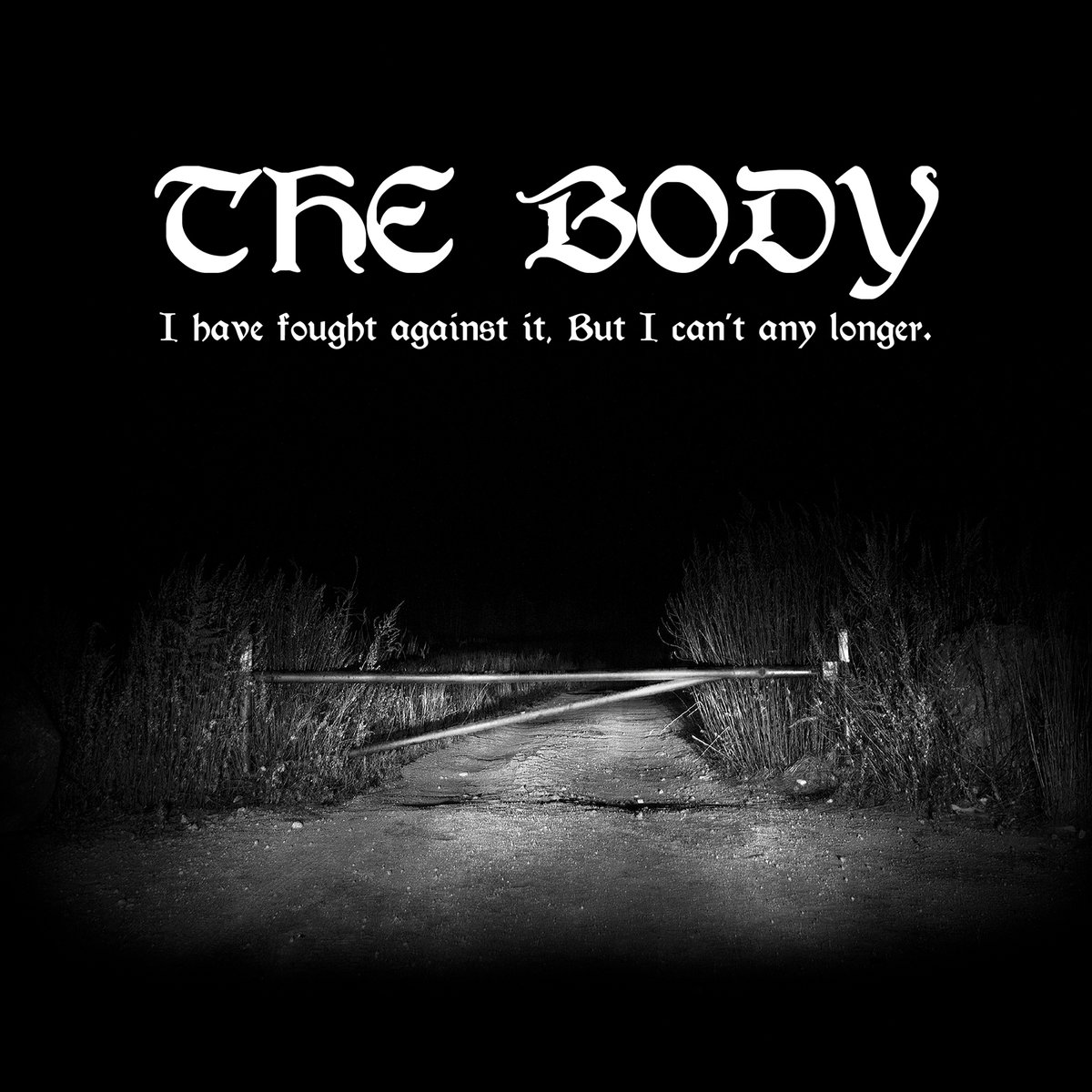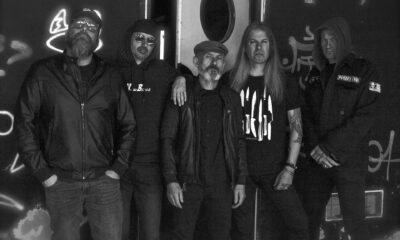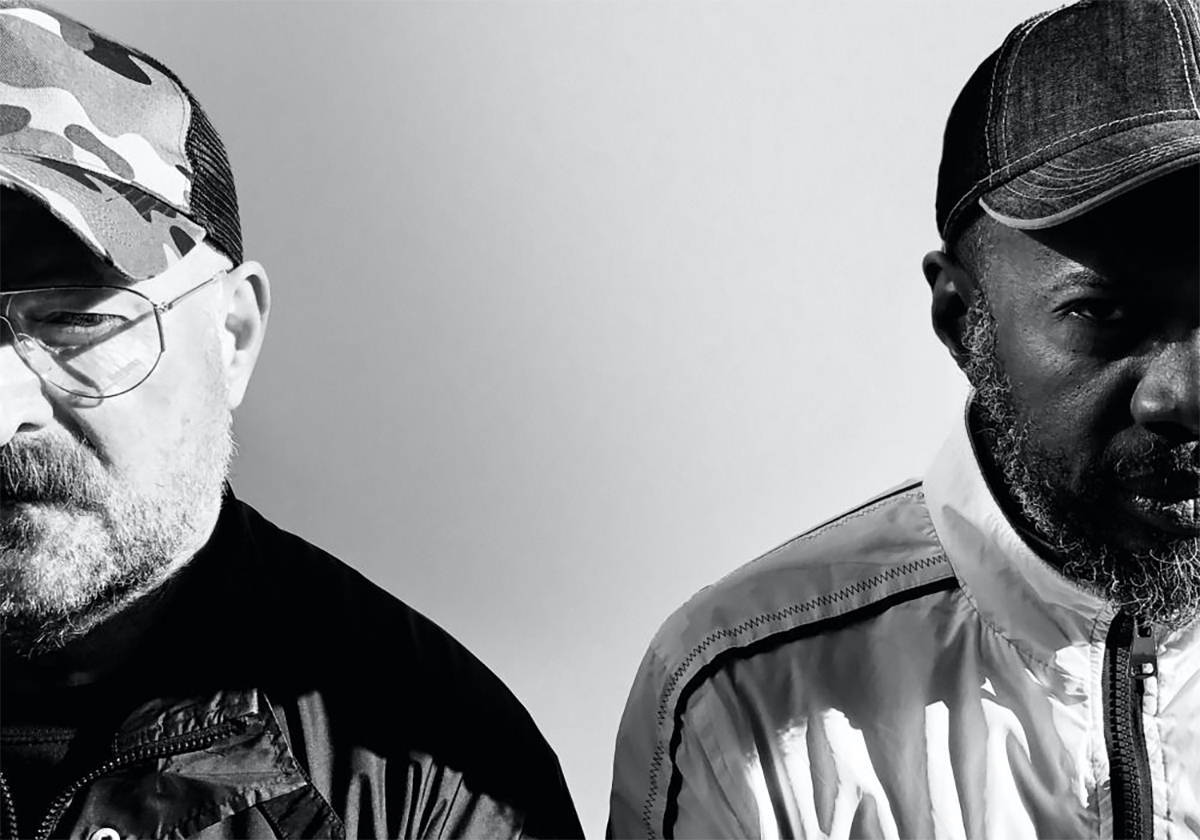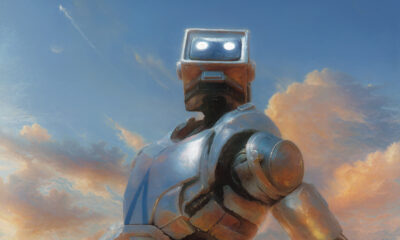Album Review
The Body – “I Have Fought Against It, But I Can’t Any Longer” [Album Review]
On The Body’s latest release, they seem to be continuing down even more deviant avenues, exploring the wider gamut of genres contained under the pop umbrella.

“The thought of suicide is a great consolation. By means of it, one gets through many a dark night.” – Friedrich Nietzsche
The Body’s work has long been synonymous with viscera; their name alone conjures imagery of violent crime. Of decomposing flesh. Of human form beyond use. Factoring in their propulsive and all-consuming deranged noise-pop sound only solidifies this further. Their music pistons like adrenaline-flooded tendons thrashing for dear life. There’s always a sense of desperation to this resigned flailing, as if resisting whilst knowing that submission is mere moments away. And yet there is a cohesion to it all too.
When things clash and contrast it is out of a well-formulated necessity and rarely ever from a base desire to shock. On this latest release they are flexing literary muscles too: We find a Clarice Lispector quote stretching across the gatefold’s centre spread and, of course, the album title itself – I Have Fought Against It, But I Can’t Any Longer – is lifted from the suicide note of Virginia Woolfe. Suicide also seems to be a bit of theme on this record as the album closer finds Bohumil Hrabal (Czech author of Closely Watched Trains) contemplating throwing himself from a fifth-floor window. Something which would later become a reality. And so, it is perhaps within this overlapping juxtaposition of the corporeal and the cerebral that The Body truly finds their footing and prosper.
The fifth track “Nothing Stirs” best showcases this. The centrepiece of this album appearing precisely where you would expect it to be – right at the midway mark. Which is unusual considering the propensity of Chip King and Lee Buford to subvert expectations. Mind you, if you find yourself surprised by that, then maybe they’ve still succeeded. “Nothing Stirs” is trap-like with its sizzling hi-hats and bursts of cranked-gain kicks. The odd bass line clatters around in a back room as Kristin Hayter (who is perhaps better known as Lingua Ignota) materialises in all-embracing heraldic form, launching this track into a full-blown harsh noise ballad. And then, slowly, almost imperceptibly, her voice begins to transform. Crumpling bit by bit from a smooth satin coo into a barbed wire screech of “March on”. This moment encapsulates – in just shy of six minutes – The Body’s formidable ability to savage beauty until it is little more than pulped anguish.
Check out a full stream of I Have Fought Against It, But I Can’t Any Longer.
On No One Deserves Happiness… King and Buford set out to make “the grossest pop album of all time” and with this latest release they seem to be continuing down even more deviant avenues, exploring the wider gamut of genres contained under the pop umbrella. And somehow they manage to achieve this whilst continuing to be, undeniably, themselves. “The West Has Failed” comes in as the great distorted beast The Body is always capable of being. This time they dip into heavy dub riddim territory with bolshy kick drums, and a snare that sounds like it’s been recorded in an aircraft hanger. Couple this with a sample from Eek-A-Mouse’s track “Noah’s Ark” and this is probably the closest that the pair has ever come to recording a reggae track.
This studio album, their sixth or thirteenth (depending on whether or not you count collaborative efforts), feels like the twosome are leaning further towards the creative approach of hip-hop artists. The list of contributors is both lengthy and impressive. Long-time colluder Chrissy Wolpert (of Assembly of Light Choir fame) appears on the opening track and also “Blessed Alone”. The aforementioned Kristin Hayter lends her haunting pipes on five different occasions. We also get the dread yelp of Uniform’s Michael Berdan, and the inimitable sound of Ben Eberle’s voice dragging itself from Dante’s underworld to unceremoniously oblate on the steps of three different tracks.
But it’s not just in the guest spots that the similarity with hip-hop arises. The musical construction is primarily centred around samples and programmed drums, as opposed to mic’ing up and walloping instruments. Any timid fears that this might have dulled the band’s edge are swiftly allayed as each sonic impact feels like it has a woosh of consequence, and the underlying sense of dread remains fiercely palpable. This is The Body after all.
Meanwhile, the penultimate track – “Sickly Heart of Sand” – is a medley of panned ticking hi-hats and huge, reverb-swaddled, bass thumps. All of which set up the sort of nasty angular guitar work that hasn’t been heard since Khanatedowned their instruments. A false start then unleashes a kinetic and frenetic hip-hop groove that rivals Dälek at their noisiest. “Off Script” is a thick gloop of incandescent fuzz that saturates the roaming drums in its vast pool of distortion. Ben Eberle gores his way through the end section as the beats warp and melt into a psychiatric nightmare. Then from under the rumbling metal tread of a military tank “An Urn” is churned. The sampled kit triggered as if by the reactionary finger of an NRA lifer fearing an encroachment on the 4th amendment. The drums pivot from wild and impulsive to a precision staccato. Syrian wedding keys arise out of the muck before any optimism is mocked and drowned by Hayter’s blood-chilling crooning.
Watch the older video for “The Fall and the Guilt” below.
That violent rumble returns again for the start of “Blessed Alone” but this time it’s cranked up to an anxiety-inducing 11. Wolpert separates the clouds of gloom for long enough to allow a tearful combination of piano and strings to emerge, akin to watching the coffin of a loved one being lowered into the dirt. The distraught swell of your heart spliced with a stab of grief, and that’s just when the cantankerous drums smash in, and Chip wails and Eberle barks like they’re the drunken hit-and-run drivers responsible for the departed’s demise, gatecrashing the wake and demolishing everything in sight. Hope, peace, closure. All obliterated by the rabid cacophony from these cruel and merciless sadists.
But it’s not all rancorous. On the tracks that bookend the album, we have gossamer vocals from Chrissy Wolpert and Kristin Hayter. “The Last Form Of Loving” features the former opining over funereal strings steeped in sorrow. Distant ominous thuds shift from the gait of a stalker into a panicked heartbeat as rushing static builds into a minor peak, opening the door for the arrhythmic despair of “Can Carry No Weight”. The finale, however, is constructed from radiation surges that warn and threaten the grating strings in a race to the bottom, as a resplendent Hayter reappears to set up the slowly drawn lament on hurt from the aforesaid Czech author.
In an old interview with Decibel Magazine, Buford explained that Chip “hates the guitar even though he plays guitar” and, in that moment of incongruity, The Body’s aesthetic is captured. Wanting an end to the ache of life but always finding themselves just about holding on.
I Have Fought Against It, But I Can’t Any Longer Track Listing:
01. The Last Form Of Loving
02. Can Carry No Weight
03. Partly Alive
04. The West Has Failed
05. Nothing Stirs
06. Off Script
07. An Urn
08. Blessed, Alone
09. Sickly Heart Of Sand
10. Ten Times A Day, Every Day, A Stranger
Run Time: 50 minutes
Release Date: May 11, 2018
-

 Music5 days ago
Music5 days agoTake That (w/ Olly Murs) Kick Off Four-Night Leeds Stint with Hit-Laden Spectacular [Photos]
-

 Alternative/Rock7 days ago
Alternative/Rock7 days agoThe V13 Fix #010 w/ High on Fire, NOFX, My Dying Bride and more
-

 Alternative/Rock2 weeks ago
Alternative/Rock2 weeks agoA Rejuvenated Dream State are ‘Still Dreaming’ as They Bounce Into Manchester YES [Photos]
-

 Features5 days ago
Features5 days agoTour Diary: Gen & The Degenerates Party Their Way Across America
-

 Culture1 week ago
Culture1 week agoDan Carter & George Miller Chat Foodinati Live, Heavy Metal Charities and Pre-Gig Meals
-

 Music1 week ago
Music1 week agoReclusive Producer Stumbleine Premieres Beat-Driven New Single “Cinderhaze”
-

 Alternative/Rock1 week ago
Alternative/Rock1 week agoThree Lefts and a Right Premiere Their Guitar-Driven Single “Lovulator”
-

 Alternative/Rock1 week ago
Alternative/Rock1 week agoDeath Wishlist Are Fiery and Fierce with Their “I Get Bored” Video Premiere














